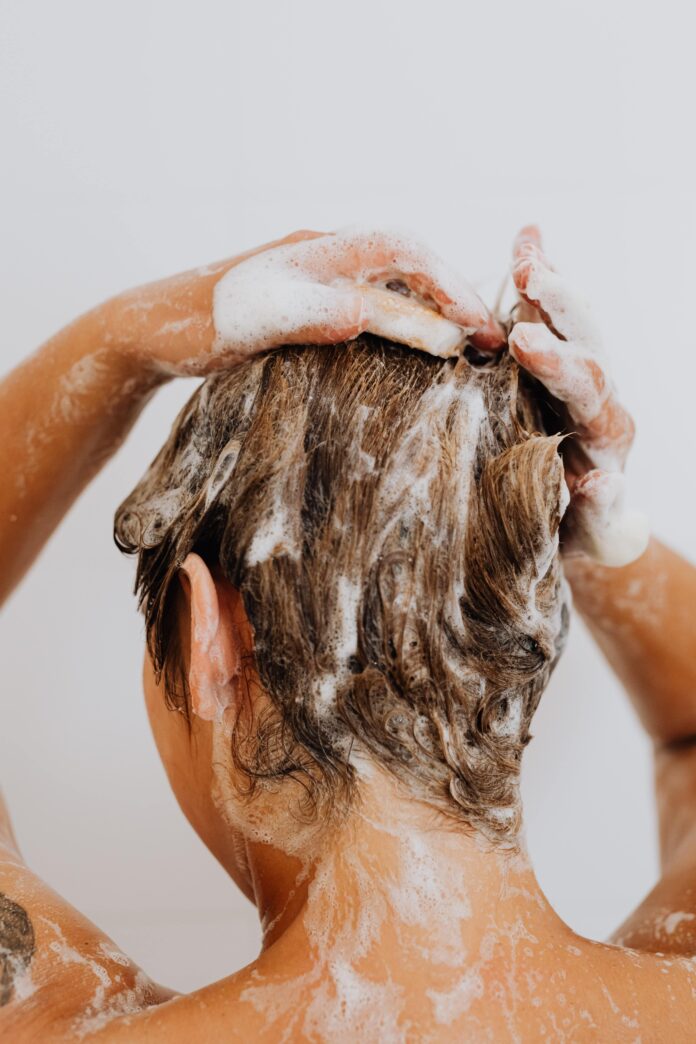Soft water can prevent hair loss and dandruff, according to experts
Wales has topped the list as one of the best areas to live in to maintain healthy hair according to recent data due to the softness of the water.
Experts at Europe’s largest hair clinic, Elithair, have analysed the areas in the UK with the hardest and softest water after several academic studies have shown that hard water exacerbates dermatological problems. A recent study by the University of Sheffield has shown an increase in cases of dermatitis as well as damage to the scalp in people living in an area with high water hardness, unlike the soft water of Wales.
Manchester, Liverpool, Cumbria and Lancashire were also among the best places to live with water for optimum hair health. At the other end, areas in the UK with hard water include; Bath, Bristol, Guildford, Milton Keynes, Hemel Hempstead and Oxford.
There are several ways to determine the hardness of the water in your home. First, check your local council’s website to find out about the water quality where you live.
A quicker and more effective way to check if you have scale in your water is to have a look at your taps and appliances. If you see white streaks or hard deposits, the limescale level is high. Soft water areas such as Wales will not have this.

Effects of hard water on hair?
Frequent dandruff or a very sensitive scalp to water as well as pimples or itching are all signs of the effect of water on the hair. Lengths can also become coarse in certain types of hair, such as curly hair or very porous hair. Hard water can even lead to hair loss as a result of itching and inflammation. In most cases, it is only temporary hair loss, and it’s possible to reverse it if appropriate treatment is initiated.
Limestone is actually quite beneficial to our bodies, despite its bad reputation. It is a mineral made up of calcium ions, carbonate ions or oxides, which covers the need for magnesium and fights against cardiovascular disease. If limestone brings benefits from the inside, on the other hand, it can damage the outside of the body for the same properties and be aggressive to our skin.
Dr Balwi, medical director and leading hair specialist at Elithair, says:
“Hard water damages the hair fibre, causing dryness and split ends when bathed in regularly. As a result, the hair becomes dull and brittle. This can lead to long-term hair loss in rare instances. There are alternatives to mitigate the effects of limescale on our hair as it is not possible for everyone to move to Wales or East Scotland.
“Recognising early signs of scalp psoriasis is important for effective treatment. The most noticeable symptom is the different-sized scaly red patches which will develop on the scalp.
There may be either red or silvery-white scales on light skin tones, whereas plaque psoriasis can look darker, raised and flaky on dark skin tones. In more severe cases, additional symptoms also develop. These include: Burning or itchy sensation on the scalp, the patches become raised and form bumps, the bumps will be flaky, dryness of the scalp and a tight feeling and as the skin sheds, or when you scratch your scalp, you will notice dead skin on your clothing (especially on your shoulders). This is common with dandruff, however, with scalp psoriasis, it’s much more severe. Also, patients tend to shed larger flakes than people with dandruff.
Some people find that the symptoms spread to other areas of the head. The scalp psoriasis symptoms may also start to affect the forehead, neck, and ears.”
What else could make my hair thin?
There are several other environmental factors which may be accelerating your hair loss including stress, anxiety, smoking or an unhealthy diet. The most common reasons for hair thinning include:
- Genetics: Pattern hair loss (androgenetic alopecia) can result in the hair thinning as a result of your family history. The shrunken hair follicles can be observed with a biopsy to provide a diagnosis or with a general examination.
- Hormone levels: High and low hormone levels in the thyroid can result in the hair thinning. Blood tests with your GP should confirm if this is the cause. With menopause and PCOS (polycystic ovary syndrome), the male hormones in the body increase, causing hair shedding to become more prominent.
- Autoimmune conditions: Diffuse thinning can be a symptom of a condition such as alopecia areata incognita, where the hair sheds suddenly and in an erratic pattern. This is because of the body’s immune system mistakenly attacking the hair follicles, causing them to weaken.
- Stress: If your body undergoes a stressful event, either because of a physical or emotional trauma, hair can shed as a reaction. Here, the body prioritises sending nutrients to your vital organs, over non-essential functions like hair growth. The hair is not supported to grow properly and can become weak.
If you’re experiencing hair or scalp issues in spite of soft water. One of the following natural remedies would be advised:
- Coconut oil or tea tree oil
Both coconut oil and tea tree oil have anti-inflammatory and anti-bacterial properties. This means they can greatly relieve itching and rashes as well as moisturise the skin. - Aloe vera gel
Aloe vera is one of the best moisturisers for the scalp. Not only is it rich in moisture, but it also soothes irritation and burning sensations of the skin. Keeping the scalp lubricated is ideal for psoriasis as it helps to improve the symptoms and reduces flaking. - Salicylic acid
This plant hormone is typically derived from willow bark where it enhances the plant’s defence system against harmful pathogens. Due to its ability to exfoliate the skin, salicylic acid, the active component of aspirin, can be a useful remedy not only for pain but also for scalp psoriasis. Hence, it’s often found in anti-dandruff shampoo.

| [donate]
| Help keep news FREE for our readersSupporting your local community newspaper/online news outlet is crucial now more than ever. If you believe in independent journalism,then consider making a valuable contribution by making a one-time or monthly donation. We operate in rural areas where providing unbiased news can be challenging. |

















